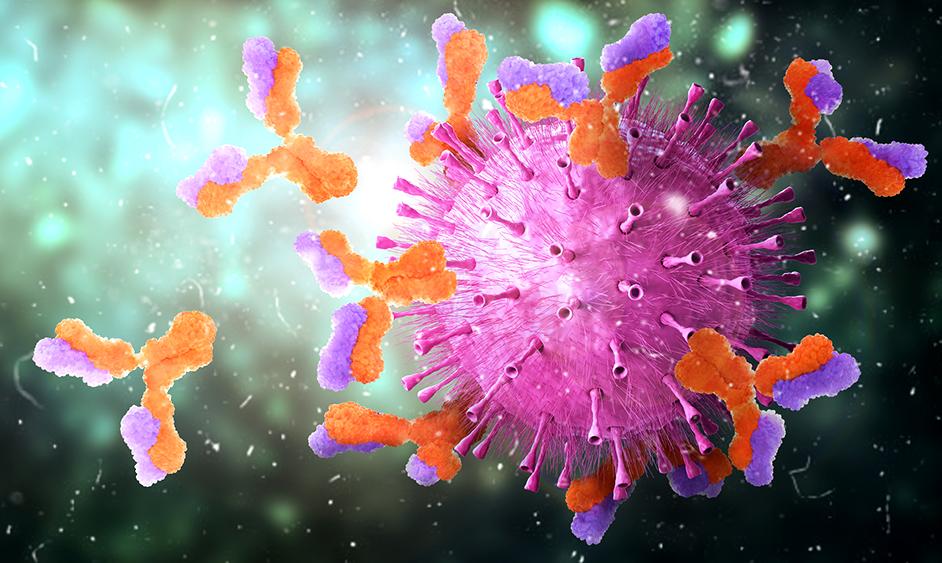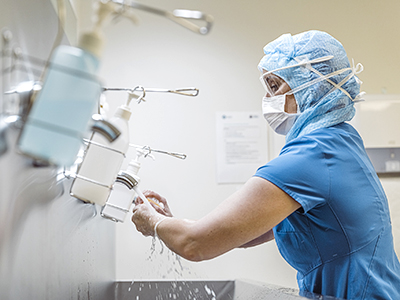
The immune-response indicators have the potential to validate protection against the novel coronavirus.
While a vaccine is the primary medical intervention to prevent the spread of the SARS-CoV-2 virus, tracking and evaluating its effectiveness will be equally important. T-cells could answer important questions about both infection and immunity rates, along with the longevity of immunity protection.
“With this particular virus, because it has only been around for less than a year, we are not sure how long the immune response might last,” says Dr. Theodore Steiner, a Vancouver Coastal Health Research Institute researcher who is co-leading a study into T-cell immunity against COVID-19 with BC Children’s Hospital immunologist Dr. Megan Levings.
“T-cells could offer a robust indicator of immunity that can help us track the effectiveness of a vaccine over a period of months and years.”
T-cells are types of white blood cells that develop in the body’s bone marrow and are secreted by the thymus—a memory stick-sized gland located just below the intersection of the collar bones. Their job is to destroy infection by targeting and eliminating infected cells either directly or by way of helping other immune cells in the body to function properly.
The ability of T-cells to successfully mount an attack against a pathogen, such as COVID-19, is an indicator of immunity to that antigen.
“The advantage of measuring T-cells is that they are primarily responsible for fending off a lot of viral infections.”
While antibodies—pathogen-attacking proteins produced by cells in the body—can neutralize pathogens outside of cells, evidence has shown that COVID-19 can spread within cells where they are able to evade detection by antibodies, notes Steiner.
“Our research will help to determine whether this is true for the immune response to COVID-19, and to what degree T-cells can protect against infection,” says Steiner.

T-cell test is accurate and scalable
Steiner and his team are investigating a state-of-the-art T-cell test for COVID-19 using flow cytometer technology, which employs lasers to detect microscopic entities, such as cells and particles. Flow cytometry can measure T-cell counts and determine whether someone has the COVID-19 destroying T-cells that can make them immune to the virus.
“An immune response may be present when some T-cells are reactive against COVID-19’s spike protein, which the virus uses to invade host cells.”
Steiner and his team have so far used this test to examine 13 health care workers who were not diagnosed with COVID-19, and 17 hospitalized patients who recovered from COVID-19.
Two health care workers exhibited low T-cell responses to COVID-19, which could indicate an asymptomatic infection or built-up immunity to another coronavirus—several milder types of coronavirus can cause the common cold—contracted at an earlier date. All but one COVID-19 patient had easily measurable T-cell responses to the virus.
“While some COVID-19 patients had very strong T-cell responses, others were detectable at a lower level,” says Steiner. “This could have been a timing issue—we may have been measuring too early in the course of their infection—or due to medications that they were taking.”
Steiner says his team has permission to follow up with study participants down the road to determine whether and to what degree an immune response is still present among the patients and health care workers who previously had immunity, and whether it developed in the patient who did not have COVID-19-destroying T-cells.
“The main conclusion we can draw right now is that the test we are using works, is practical and would be feasible to implement on a larger scale.”

“If the virus mutates over time and becomes a different virus, researchers could be back to square one,” says Steiner. “Understanding immunity would be important in that case, too.”
The test could also be used to measure immune responses among people who are immunocompromised and at a higher risk of not responding to the vaccine, says Steiner. Because the steroids many immunocompromised patients take suppress T-cell responses, there is a question of whether it is possible to measure their immune response efficiently. “And with this test we can,” Steiner says.


